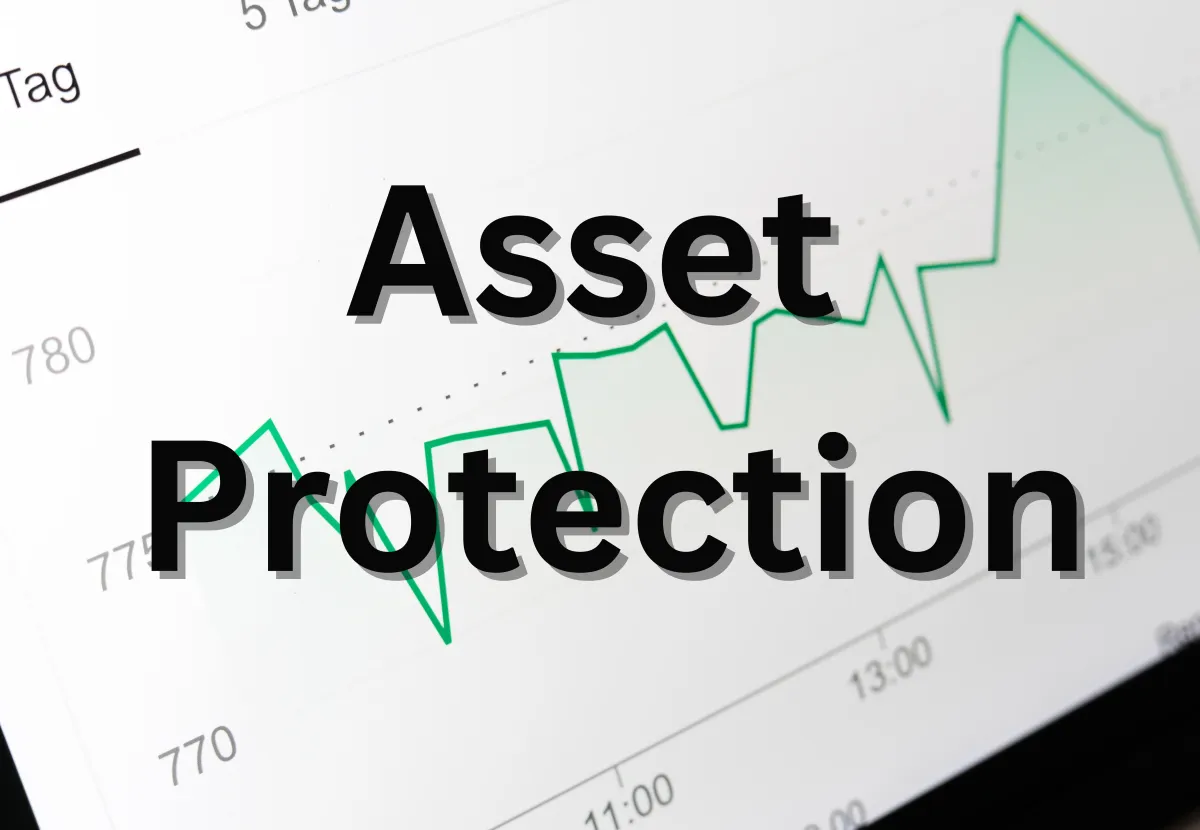
Giving you an uncensored view of what's really going on with your money and what's possible.
We flip up the hood, and debunk the myths to help you take advantage of the Insurance/Financial Services Industry
Use the same Insurance Policies and Tax Codes the wealthy do to protect and grow your money
Our Services

Tax-Free Retirement Accounts (TFRA)
Your financial advisor probably haven't told you about these accounts, nor do they know how to set them up legally to be tax-free for the account holder.
This will Lock in your gains with a Zero floor
They can offer payment Flexibility
Provide Tax-Free Income using the US Tax Code
Establishes a Safety Net should something happen before you can invest enough to retire.
See if it's a good fit and if you qualify, set one up correctly.
Then enjoy knowing Uncle Sam can't tax you on this stash of cash.
Asset Protection
The #1 question you should be asking your Financial Advisor about your retirement
You have worked hard and hopefully invested wisely to accumulate the assets that will provide for a comfortable retirement.
Taking a loss at this point can be catastrophic and delay your retirement or eliminate it completely.
Simple steps can be taken to remove this risk and allow you to still grow your money without risk of market losses or outliving your resources.
Right about now you should be asking yourself why your financial advisor cant provided a solution that GUARANTEES the safety of your retirement funds?


Mortgage Protection
If you own a home with an outstanding loan balance this maybe an option for you to consider. Simply put this ensures your family wouldn't struggle to pay the overhead should something happen to the main breadwinner in the family.
The hard truth is most household spend hundreds of dollars every month on frivolous expenses yet they still have nothing in place to cover the mortgage payments and replace lost income when illness or tragedy strikes.
The REAL truth about all those mailers
Learn about your options
Relax knowing everything is covered as needed
The J & P
Keeping the Life in Life Insurance
Jam

Pang-Nhia
Read Our Latest Blogs

Tax-free retirement accounts: what are they and how do they work
Tax-free retirement accounts: what are they and how do they work
Tax-free retirement accounts, such as Roth IRAs and Roth 401(k)s, are becoming increasingly popular among investors who are looking to minimize their tax burden in retirement. In this blog post, we will discuss the benefits of these accounts and provide tips for maximizing their potential.
What are Tax-Free Retirement Accounts?

A tax-free retirement account (TFRA) is a long-term investment that attempts to minimize your tax burden in your later years. It is a retirement savings account that works similar to a Roth IRS.
Contributions to a TFRA are made with after-tax dollars, meaning you fund it with money on which you've already paid taxes. Growth on the funds in a TFRA is not taxed. This means that any interest, dividends, or capital gains earned on the account are not subject to taxes. Withdrawals from a TFRA are tax-free in retirement as allowed with the US Tax Code IRC 7702.
Benefits of Tax-Free Retirement Accounts
Tax-Free Withdrawals: The biggest benefit of tax-free retirement accounts is that withdrawals are tax-free in retirement. This means that you can withdraw funds from your account without having to pay taxes on them. This can be a huge advantage for retirees who are looking to minimize their tax burden in retirement.
No Required Minimum Distributions: Unlike traditional IRAs and 401(k)s, which require you to take required minimum distributions (RMDs) starting at age 72, Roth IRAs and Roth 401(k)s do not have RMDs. This means that you can leave your money in the account for as long as you want, allowing it to continue to grow tax-free.
Flexibility: Roth IRAs and Roth 401(k)s offer more flexibility than traditional retirement accounts. For example, you can withdraw your contributions at any time without penalty. This can be useful if you need to access your funds for an emergency or unexpected expense.
Estate Planning: Roth IRAs and Roth 401(k)s can be useful for estate planning. Because there are no RMDs, you can leave your money in the account for as long as you want, allowing it to continue to grow tax-free. This can be a huge advantage if you want to leave money to your heirs.
Tips for Maximizing the Potential of Tax-Free Retirement Accounts
Start Early: The earlier you start contributing to a tax-free retirement account, the more time your money has to grow tax-free. Even small contributions can add up over time, so it's important to start as early as possible.
Maximize Contributions: The contribution limits for tax-free retirement accounts are higher than for traditional retirement accounts. For example, in 2023, you can only contribute up to $19,500 to a Roth 401(k) and up to $6,500 to a Roth IRA. With a TFRA maxing out your contributions can help you take full advantage of the tax-free growth potential of these accounts.
Diversify Your Investments: It's important to diversify your investments within your tax-free retirement account. This can help you minimize risk and maximize returns and help to create a well-diversified portfolio.
Consider Converting Traditional Accounts: If you have a traditional IRA or 401(k), you may want to consider converting it to a Roth IRA or Roth 401(k). While you will have to pay taxes on the amount you convert, the long-term tax benefits of a Roth account may outweigh the short-term tax costs.
Consult with an Advisor: A good advisor can help you determine the best retirement accounts for your specific financial situation. They can help you create a retirement plan that takes into account your goals, risk tolerance, and other factors.
With all that said.
At the end of it all ask yourself these questions:
Do you think taxes will go up higher than the all time lowes we have seen lately?
Would you like your money to grow and compounded interest without risk of market loss?
Would you like to spend those gains Tax-Free in retirement?
If you answered yes to those three questions, you should see if you qualify for a TFRA account that you can afford.
By contributing after-tax dollars and allowing your investments to grow tax-free, you can create a source of tax-free income in retirement. To maximize the potential of these accounts, it's important to start early, maximize contributions, diversify your investments, consider converting traditional accounts, and consult with a licensed advisor to help you with Tax-Free Income.


